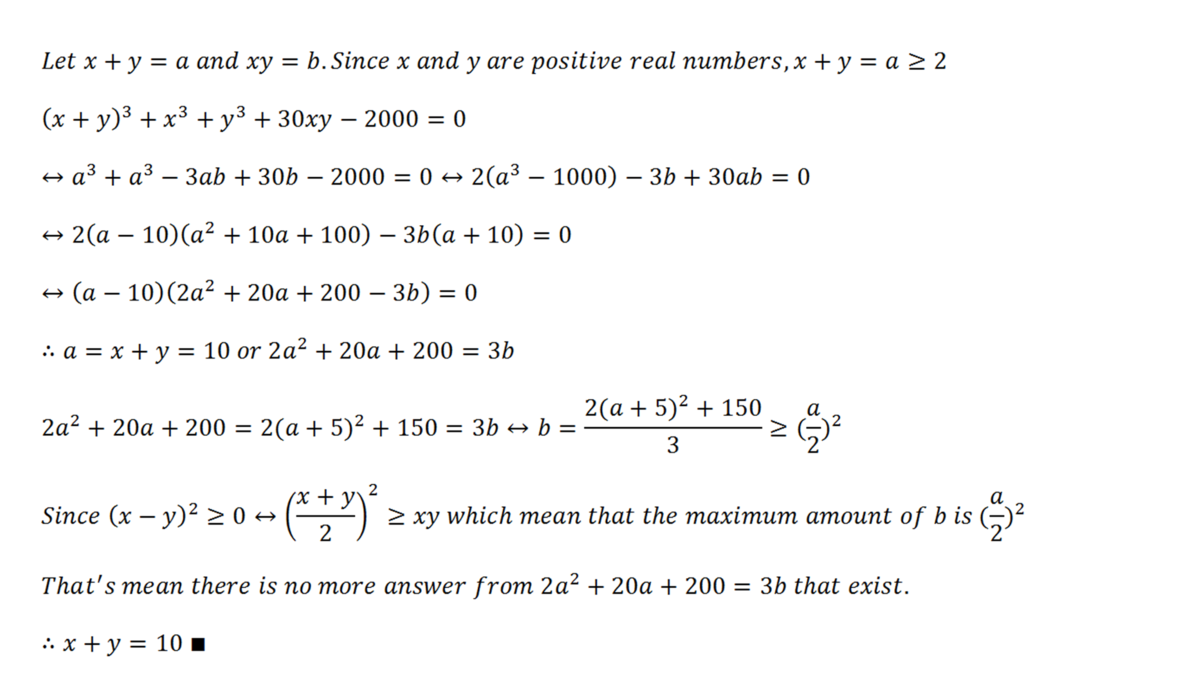Welcome 2016! Part 16
Let x and y be non - negative real numbers such that
x 3 + y 3 + ( x + y ) 3 + 3 0 x y = 2 0 0 0
Find the value of x + y .
The answer is 10.
This section requires Javascript.
You are seeing this because something didn't load right. We suggest you, (a) try
refreshing the page, (b) enabling javascript if it is disabled on your browser and,
finally, (c)
loading the
non-javascript version of this page
. We're sorry about the hassle.
3 solutions

I disagree with the first line. It is not true that a ≥ 2 . However, that is not used elsewhere in your solution.
Log in to reply
Yes. I just see that both x and y are just positive real numbers, not positive integers. So it should be a>=0. But anyway it wasn't used in the solution.
Let x+y =s. Then on use of some simple identies and expansion, we get the equation 2s^{3} -3sxy +30xy -2000 =0 Thus, the possible roots should divide 30xy -2000 which is the constant term of the equation in s. Thus possible roots are 1 or 2 or 5 or 10. Now the equation is equal to s^{3}-3xy(s-10)=2000. Try the obtained roots and u will see that 10 satisfies the equation. A bit tedious, but it works.
Jee Style
Given equation is an identity (for
x
,
y
≥
0
)
So, substituting
x
=
0
0
3
+
y
3
+
(
0
+
y
)
3
+
3
0
∗
0
∗
y
=
2
0
0
0
y
=
1
0
∴
x
+
y
=
0
+
1
0
=
1
0
Moderator note:
This solution doesn't make sense. The given equation is not an identity .
I guess what you are trying to say is that the answer is independent of x + y . If so, make that explicit instead and state that you do not have the general solution.
To the challenge master: Can you post the perfect general solution?